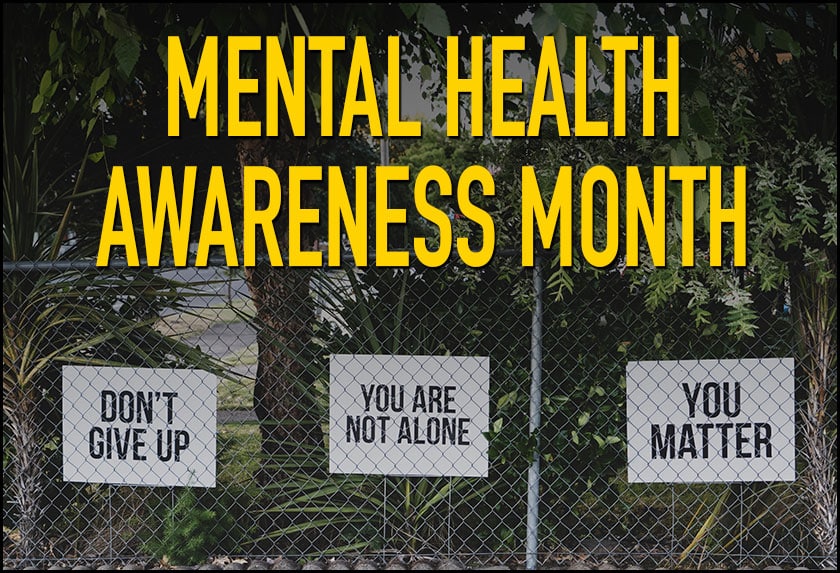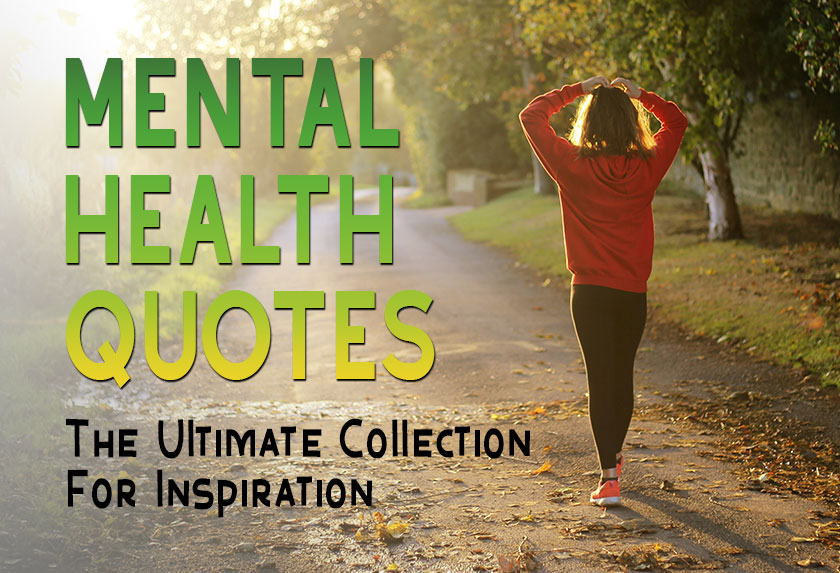Mental health is there, and we can see its devastating impact—but we rarely confront or address it. This is partly due to disinformation, misinformation, and stigma. But this must change.
Mental health is a serious matter—and it should be treated as such. Raising awareness is an important stepping stone on the road to recovery, a more fulfilling life, and a happier community.
Mental Health Awareness Month is a timely reminder that the “elephant in the room” must be addressed. There’s hope in understanding mental health issues, caring for those affected, and showing compassion.
Read on for answers to “When is Mental Health Awareness Month?” We also highlight some concerning mental health statistics, the importance of raising awareness, and how you can observe Mental Health Awareness Month.
When is Mental Health Awareness Month?
May is Mental Health Awareness Month. It is an annual tradition that has been observed since 1949, when Mental Health America (a national advocacy organization) designated it as such.
Each year, individuals, groups, and organizations band together in unison to call out the “silent endemic” of mental health conditions. May is a month to support those affected, diffuse the stigma associated with mental health, educate the public, and advocate for favorable policies.
The Importance of Mental Health Awareness by the Numbers
We know when is Mental Health Awareness Month, but why is it important? Why should we put a spotlight on mental health issues? Well, because the issue is direr than most people realize. Here are some statistics on the state of mental health issues in the United States:
- People with a mental illness are nearly 2X more likely to develop metabolic and cardiovascular diseases than the general American population.
- More than 1 in every 5 Americans (over 50 million) have a mental illness. Common mental health conditions include depression, anxiety disorders, mood disorders, post-traumatic stress disorder, psychotic disorders, eating disorders, obsessive compulsive disorder, and personality disorders.
- The number of US adults who reported symptoms of depression or anxiety skyrocketed from 11% in early 2019 to over 40% in 2021. This has been linked to the effects of the COVID-19 pandemic.
- As reported by Mental Health America, over 60% of youths with major depression don’t receive treatment—and only 27% of those with severe depression receive consistent care.
- Around 7 in 10 youths in America’s juvenile justice system suffer from a diagnosable mental illness.
- Cases of suicide in the United States have increased by 35% since 1999—and 9 in 10 suicide victims show symptoms of mental health issues.
- Mental illnesses are linked to around $193.2 billion in lost earnings annually.
- Rates of mental illness are higher among people of color, LGBTQ people, and other marginalized groups. The risk of self-harm or suicidal thoughts is 4X higher among LGBTQ youths than non-LGBTQ peers.
- People with mental health issues struggle with access to the care they need. The delay between onset of diagnosable symptoms and treatment is estimated to average a concerning 11 years.
How to Observe Mental Health Awareness Month
The statistics paint a clear picture of the grim reality. But despite the severity of the problem, there are still barriers and stigma around mental illness that prevent people from receiving the help they need.
The US National Institute of Mental Health reports that more than 50% of Americans suffering from a diagnosable mental health issue do not receive treatment. Regardless, hope is not lost and more treatments are being looked at such as Psychedelic Therapy for mental health. We can change the narrative together. How? By championing impactful conversations and supporting noble campaigns such as Mental Health Awareness Month.
Here are some ways you can observe Mental Health Awareness Month:
- Educate Yourself and Others: Look to understand mental illnesses better. What do people who have a mental health disorder go through? How can you mitigate the risk of mental illness? What help is available? How can you help combat the stigma around mental health? There are tons of resources that help raise mental health awareness, including some of your favorite movies. You can then share the information in your community or on social media.
- Start a Conversation: Spark meaningful conversation with people who may need help with mental health issues. Let them know that they are not alone, there is help, and they have your support. Simply letting them know that they have a listening ear, a caring heart, and a shoulder to lean on can significantly impact their lives.
- Volunteer or Donate: Find organizations that promote mental health and volunteer or donate to aid their cause.
- Take Care of Yourself: Don’t forget to nurture your mental health. Reflect on your wellness and prioritize yourself this Mental Health Awareness Month by adopting healthy habits that reduce your risk of mental health issues. One interested and effective practice is the use of a gratitude jar. Also, consider practicing mindfulness, promoting quality sleep, eating healthy, and exercising regularly.
Remember, the seemingly insignificant mental health awareness you raise today may save someone’s life tomorrow (including yours).
How Will You Observe Mental Health Awareness Month?
It is clear that mental health is a serious problem that must be addressed with utmost importance. Sure, May is Mental Health Awareness Month—but raising awareness on the issue should not stop there. Make it a year-round effort.
Take care of your mental health and help others take care of theirs. Only by speaking out and raising awareness continually can we effectively fight back.
“The advice I’d give to somebody that’s silently struggling is: You don’t have to live that way. You don’t have to struggle in silence. You can be un-silent. You can live well with a mental health condition as long as you open up to somebody about it, because it’s really important you share your experience with people so that you can get the help that you need.”
—Demi Lovato
If you or a loved one is suffering and trying to cope with life’s barrage of challenges, YOU ARE NOT ALONE!
At Revive Recovery & Detox Services, we hope to shine a light on mental health and help break the silence on the issues. Reach out today at (844) 467-3848 to speak to a professional.






